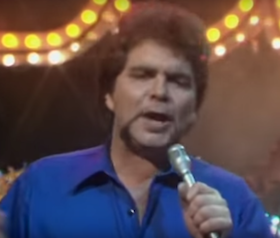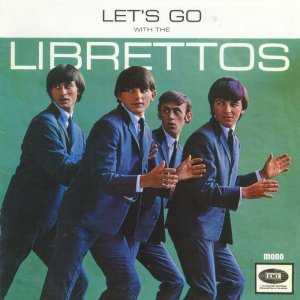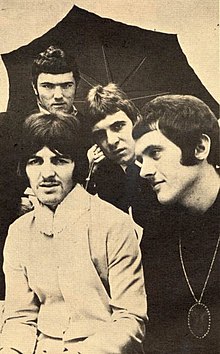
Edmund "Ed" Kuepper is a German-born Australian guitarist, vocalist and songwriter. He co-founded the punk band The Saints in 1973, the experimental post-punk group Laughing Clowns and the grunge-like The Aints!. He has also recorded over a dozen albums as a solo artist using a variety of backing bands. His highest charting solo album, Honey Steel's Gold, appeared in November 1991 and reached No. 28 on the ARIA Albums Chart. His other top 50 albums are Black Ticket Day, Serene Machine and Character Assassination. At the ARIA Music Awards of 1993 he won Best Independent Release for Black Ticket Day and won the same category in 1994 for Serene Machine.
Kevin Nicholas Borich is a New Zealand-born Australian guitarist and singer-songwriter. He was the mainstay of the La De Da's, the leader of Kevin Borich Express, and a founding member of the Party Boys, as well as a session musician for numerous acts.

Christopher John Wilson was an Australian blues musician who sang and played harmonica, saxophone and guitar. He performed as part of the Sole Twisters, Harem Scarem and Paul Kelly and the Coloured Girls, and fronted his band Crown of Thorns. Wilson's solo albums are Landlocked, The Long Weekend, Spiderman (2000), King for a Day, Flying Fish (2012) and the self titled Chris Wilson (2018).

Douglas John Ford is an Australian rock guitarist and songwriter since the mid-1960s. He was lead guitarist of rock n roll group, the Missing Links (1965–66), then during 1968–72, he joined the pop-rock band, the Masters Apprentices. He established a writing partnership with that group's lead singer, Jim Keays. Ford participated in some of the reunions of the Masters Apprentices from 1988 to 1991 and 1997. At the ARIA Music Awards of 1998 the group were inducted into the ARIA Hall of Fame.
The Wild Cherries were an Australian rock group, which started in late 1964 playing R&B/jazz and became "the most relentlessly experimental psychedelic band on the Melbourne discotheque / dance scene" according to commentator, Glenn A. Baker.

Douglas John Parkinson was an Australian pop and rock singer. He led the bands Strings and Things/A Sound (1965), the Questions (1966–1968), Doug Parkinson in Focus, Fanny Adams (1970–1971), the Life Organisation (1973), Southern Star Band (1978–1980) and Doug Parkinson Band (1981–1983). Doug Parkinson in Focus's cover version of the Beatles' track "Dear Prudence" peaked at No. 5 on the Go-Set National Top 40. The follow-up single, "Without You" / "Hair" (October), also reached No. 5. Parkinson released solo material and performed in musical theatre productions.

Mick Rogers is an English rock guitarist, singer and songwriter, chiefly known for his time with Manfred Mann's Earth Band from 1971 to 1975 and again since 1984.
Gary Young is an American-born Australian musician who was a founding member of Australian rock band Daddy Cool in which he played the drums and sang backing vocals. He also played drums with Jo Jo Zep & The Falcons amongst other bands. Young was twice inducted into the Aria Hall of Fame as a member of both Daddy Cool and Jo Jo Zep & The Falcons which were inducted into the Australian Recording Industry Association (ARIA) Hall of Fame in 2006 and 2007 respectively.
Sons of the Vegetal Mother were an Australian "esoteric special-occasion progressive band", formed in late 1969, with a floating line-up based around the nucleus of Ross Wilson and Ross Hannaford. A side-project of the band, formed in 1970 was Daddy Cool, which played 1950s doo-wop music plus some originals. Daddy Cool were to eclipse their parent band when their debut single "Eagle Rock" reached No. 1 on the Australian National charts.
The Groop were an Australian folk, R&B and rock band formed in 1964 in Melbourne, Victoria and had their greatest chart success with their second line-up of Max Ross on bass, Richard Wright on drums and vocals, Don Mudie on lead guitar, Brian Cadd on keyboards and vocals, and Ronnie Charles on vocals. The Wesley Trio formed early in 1964 with Ross, Wright and Peter McKeddie on vocals; they were renamed The Groop at the end of the year.

Sebastian Hardie were Australia's first symphonic rock band. They formed in Sydney in 1967 as Sebastian Hardie Blues Band but dropped the 'Blues Band' reference when they became pop-oriented. By 1973 they developed a more progressive rock style, and later performed as Windchase, but disbanded in 1977. An early member of Sebastian Hardie was Jon English, who starred as Judas Iscariot in the Australian version of the stage musical Jesus Christ Superstar in 1972 and subsequently had a solo career as a singer, actor and playwright. A later member, Mario Millo became a multi-award winner for his television and movie music.
Tim Gaze is an Australian rock and blues guitarist, songwriter, singer, and producer. He was a member of several Australian groups from the 1960s to 1990s including Tamam Shud, Kahvas Jute (1970), Ariel (1973–74) and Rose Tattoo (1985–87). He also had a solo music career and released the albums, Band on the Run, Rough Trade (1992), Blue Sierra (1996) and Blues Remedy (1998). In April 2008 he issued a retrospective compilation covering both his group and solo work, Reckless Love: the Tim Gaze Anthology.
The Groove was an Australian R&B, pop group which formed in early 1967 with the lineup of Geoff Bridgford on drums, Jamie Byrne on bass guitar, Tweed Harris on keyboards, Rod Stone on guitar and Peter Williams on lead vocals and guitar. In December 1967 their single, "Simon Says", peaked at No. 17 on the Go-Set National Top 40 Singles Chart. They followed with "Soothe Me", which peaked at No. 14 in April 1968. Also in April they released their self-titled debut album. In July that year they won the national final of the Hoadley's Battle of the Sounds competition with the prize including a trip to London. They relocated there in March 1969, and early the following year they changed their name to Eureka Stockade, they disbanded in 1971. On 13 October 2004 Tweed Harris died of throat cancer, aged 63.
Chain are an Australian blues band formed as The Chain in late 1968 with a line-up including guitarist and vocalist Phil Manning and lead vocalist Wendy Saddington. Saddington left in May 1969 and in September 1970 Matt Taylor joined on lead vocals and harmonica. During the 1990s they were referred to as Matt Taylor's Chain. Their single, "Black and Blue", is their only top twenty hit. It was written and recorded by the line-up of Manning, Taylor, Barry Harvey on drums and Barry Sullivan on bass guitar. The related album, Toward the Blues, followed in September and peaked in the top ten. Manfred Mann's Earth Band covered "Black and Blue" on their 1973 album Messin'.
Kahvas Jute were an Australian rock band formed in July 1970. Mainstay of the line-up was Dennis Wilson on guitar and vocals. Other founder members include Bob Daisley on bass guitar and Tim Gaze on lead guitar and vocals. Their debut album, Wide Open was released in January 1971. The group supported Bo Diddley on his second tour of Australia in October 1973. Australian rock music historian, Ian McFarlane, described their style as 'expansive and free flowing, strong on rhythm and melody and bristling with exceptional guitar work' . Kahvas Jute did a reunion gig in 1991 and in 1993, their album Wide Open was re-released on CD again. In 2005, they played a reunion show at The Basement in Sydney which was recorded and filmed. A DVD and album pack entitled Then Again: Live at the Basement was issued in 2006.
Christopher Mark Bailey was an Australian bass guitarist and vocalist. He was a member of various rock groups including Headband (1971–1974), The Angels, GANGgajang (1984–2013), and The Stetsons. Bailey died of throat cancer, aged 62.
Cam-Pact was an Australian soul and psychedelic pop band which formed in April 1967. Originally they performed as The Camp Act but soon changed to Cam-Pact. Although little known outside Melbourne at the time, the various lineups of the group featured a number of young Melbourne musicians who went on to become significant figures on the Australian music scene, including Ray Arnott, Keith Glass, Chris Löfvén, Russell Smith, Robert Lloyd, and Chris Stockley. Cam-Pact issued five singles and three extended plays on Festival Records before disbanding in March 1970.

The Librettos was a New Zealand pop/R&B group, active from 1960 to 1966. They were one of New Zealand's most popular bands in 1964-65, and after relocating to Sydney they gained recognition in Australia for their polished live performances and their 1966 version of the Paul Revere & The Raiders song "Kicks". Several members of the group went on to other notable bands of the 1960s and 1970s - bassist Brian Peacock co-founded the highly regarded Anglo-Australian "progressive pop" band Procession, Rod Stone joined popular Australian '60s soul group The Groove, and drummer Craig Collinge later played with Manfred Mann Chapter Three and UK 1970s "proto-punk" band Third World War.
Wayne Ian Duncan was an Australian rock musician. In 1970 he was a founding member of the doo-wop band, Daddy Cool, providing bass guitar and backing vocals. They were inducted into the ARIA Hall of Fame in 2006. During his career he had also been a member of the Rondells, Sons of the Vegetal Mother, Gary Young's Hot Dog, Jane Clifton and the Go Go Boys, the Black Sorrows, and the Hornets. In late November 2016 Duncan had a stroke and died a week later, he was survived by his domestic partner, Anne, and by two children. According to Australian music journalist, Ian McFarlane, "Duncan was never a sedate bassist. One only has to listen to some of the latter-day DC material... to hear how inventive his playing could be."
Dave Miller is a New Zealand former rock music singer-songwriter and journalist. He was the founding mainstay of Dave Miller Set, which were based in Australia. Long-term fellow members included Leith Corbett on bass guitar, Mike McCormack on drums and John Robinson on lead guitar. Their cover version of "Mr Guy Fawkes" peaked in the top 30 on the Go-Set national singles chart. The group disbanded early in 1970 and Corbett, McCormack and Robinson founded the fellow rock group, Blackfeather. Miller and Corbett combined for a studio album, Reflections of a Pioneer by Dave Miller/Leith Corbett and Friends. In February 1973 Miller and Robinson briefly revived Dave Miller Set. Before the end of that year Miller travelled to the United Kingdom and worked as a music journalist. He returned to Australia in 1980 and lived in New South Wales. In September 2017 Miller curated a compilation album, Mr Guy Fawkes: Complete Spin Recordings & More 1967-1970, which included tracks by Dave Miller Set and by Dave Miller/Leith Corbett and Friends on CD.







